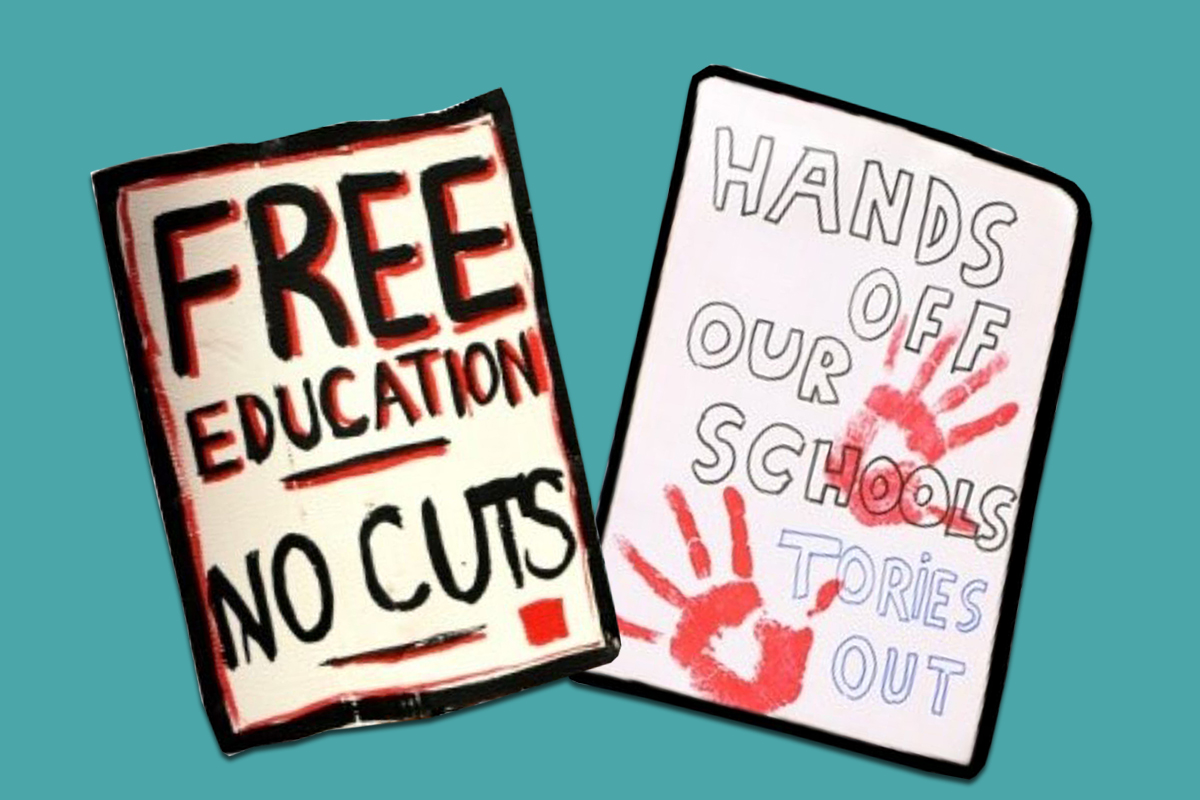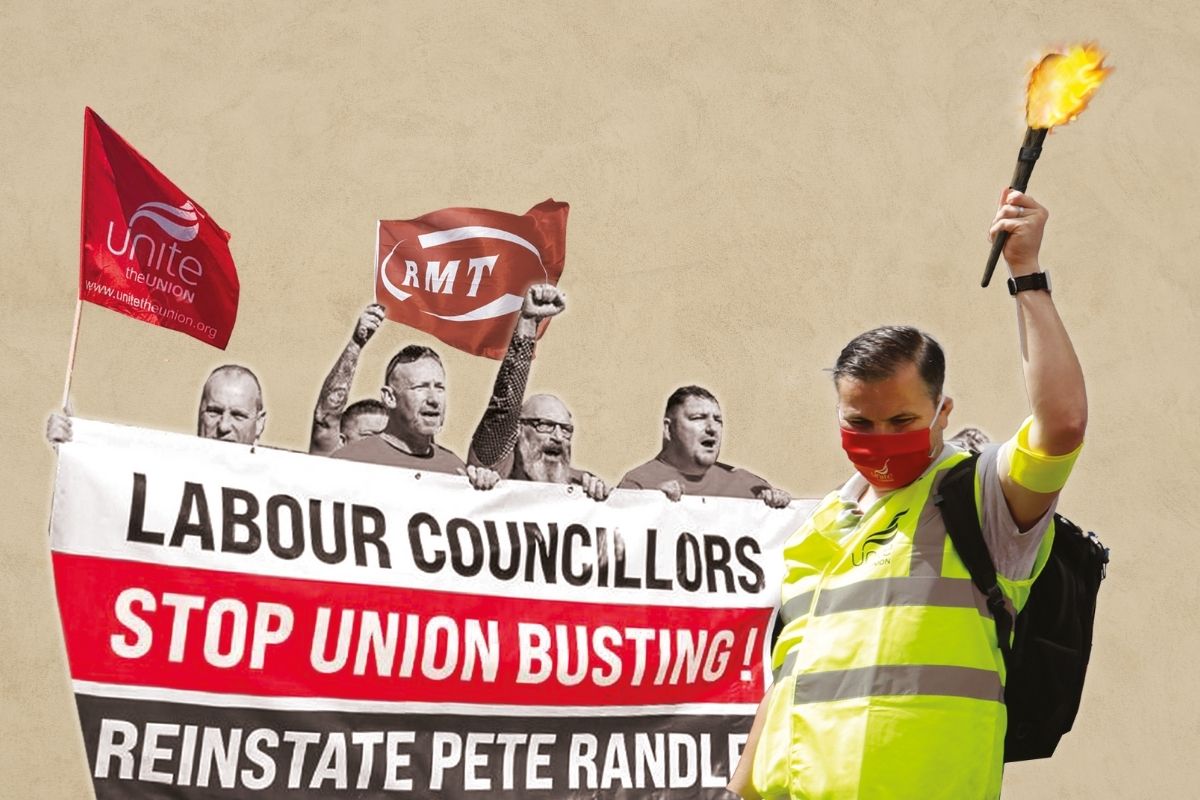NEU members at a Catholic school in Croydon have voted to strike against the scandalous decision to ban a gay author from speaking to students. This shows the way forward in the fight against oppression: through united class struggle.
Last week, on 16 April, 90% of National Education Union (NEU) members at the John Fisher School (JFS) in Purley, Croydon, voted to take strike action against the decision to ban gay author Simon James Green from speaking at their school.
As part of World Book Week, Green was invited by JFS staff to talk to students about his work, becoming an author, being gay, and how this connects with his books, which feature gay characters.
Buckling to pressure from right-wing Catholic organisations, however, the Archdiocese of Southwark pushed the school to cancel the author’s visit, on the grounds that it fell “outside the scope of what is permissible in a Catholic school”.
Censorship
John Fisher’s senior leadership team and board of governors voted to go ahead with the event, despite this ‘recommendation’. Subsequently, the diocese dissolved the school’s governing body, sacking the governors who supported Green’s visit, and imposing an interim executive board in its place.
In meetings held under the interim governing body, the education commissioner, Doctor Simon Hughes, scandalously claimed that Simon James Green’s books contain ‘grooming’ content, suggesting that the author’s visit was in some way a safeguarding concern.
These disgusting comments have rightly been likened to the scandalous homophobic Section 28 legislation introduced under the Thatcher government, which infamously banned the ‘promotion of homosexuality’ in schools from 1988 onwards – legislation that wasn’t fully removed until 2003.
Moreover, these recent allegations have led to a slew of online harassment, targeting both Green and the school’s librarian who organised the event.
Fighting mood

Trade union activists at John Fisher were not prepared to take this outrage lying down, however. Reacting quickly and decisively, they called emergency meetings in order to build for a ballot.
As part of their campaign, union reps called for messages and pictures of solidarity from the wider labour movement and community, including other NEU branches and LGBT+ groups. These were read and shared in meetings, giving teachers confidence that any decision to take action would be backed and supported by other activists.
The result was a thumping 90% vote in favour of strike action on a 70% turnout: a clear sign of how angry and determined the JFS teachers are to fight.
The situation at John Fisher was explained to delegates at the recent national NEU conference. There was anger from union members at the diocese’s conduct, with delegates offering a standing ovation when the results of the ballot were announced.
A petition calling for the reinstatement of the sacked governors has now been signed by more than 2,600 people. John Fisher staff have also enjoyed the support of local councils, the School Library Association, and a local MP.
NEU members at JFS are set to strike for six days over the space of a fortnight, on 28 April, 4-5 May, and 10-12 May. Their demands are:
- The reinstatement of fired governors.
- For the governing body to include no one who gave their support to the unlawful actions of the education commissioner of the diocese.
- For the author’s visit to be rescheduled.
- For the education commission of the Roman Catholic Archdiocese of Southwark to explain how the writer’s visit fell “outside the scope of what is permissible in a Catholic school”, and to substantiate the alleged ‘grooming’ content of Green’s work.
- For the education commission to recognise their responsibility for the emotional distress, disruption, and upset to the John Fisher School community
Unity and solidarity
The John Fisher School strike underlines the importance of strong union organisation in all workplaces. This is the best way that workers, including those from oppressed groups, can defend themselves against any attacks from on high.
It is essential that trade unionists fight back against blatantly bigoted and discriminatory censorship of this kind, which only serves to foment division and oppression.
This means appealing for class solidarity, and bringing together workers of all backgrounds in order to take a stand against such reactionary attacks. Workers, ultimately, can only rely on their own strength.
Academisation

Over the last few years, we have seen many attempts to reduce any control teachers may have over what can be taught, and when.
In this case, the school’s dispute is rooted in the actions of the Archdiocese, rather than their own senior leadership team (SLT). Nevertheless, there are many schools where the SLT would have quickly given in to reactionary pressure under similar circumstances, or who may not have supported such an event in the first place.
One of the big contributors to this is the process of academisation, which takes decision-making power away from the local community, instead putting it in the hands of unaccountable academy trust CEOs, who are free to set their own agendas.
No wonder many religious schools – and other education providers wishing to promote and peddle reactionary ideas – are pushing rapidly towards academisation.
Coming alongside recent Department for Education (DfE) guidance that explicitly equates anticapitalist views with extremism, and which prohibits their discussion, this is an extremely worrying development regarding what can and cannot be taught inside the country’s classrooms.
Workers’ control

The left and the labour movement must offer their full support and solidarity to the John Fisher School strike, and draw out the key lesson from this struggle regarding the fight against oppression: the most powerful weapon we have in our arsenal is united class struggle.
This must be linked to a wider campaign against academisation and privatisation in education; and against reactionary attempts by the establishment to censor ideas that they deem dangerous to their interests – whether that be the Tories banning anticapitalist ideas, or religious institutions whipping up prejudice and bigotry.
Struggles like these raise important questions: What is education for? Whose interests does it serve? And who should decide what gets taught?
Under capitalism, we have a rigged education system, designed to defend and promote the ideas and interests of the ruling class.
Instead, we need education to meet the needs of society and the working class. This means fighting for our schools to be run democratically by teachers, staff, and communities, with all schools – including private and free schools – brought back under local authority control.
Above all, it means fighting for a socialist society: one in which workers are in control of their workplaces; and in which we end the inequality, exploitation, and oppression that is inseparable from capitalism.
Victory to the John Fisher workers!
We asked the strikers how other activists can support them. Here’s what they suggested:
- Write to the diocese; question their decision; reiterate the demands of the strikers, and tell the diocese to accept them (educationdirector@rcaos.org.uk).
- Pass a solidarity motion in your union branch, pledging to support the strike.
- Send solidarity photos and messages to the strikers, to Simon James Green (@simonjamesgreen), and to the school librarian (@JohnFisherLRC).
- Get to the picket lines with banners and placards in support of the strike.






